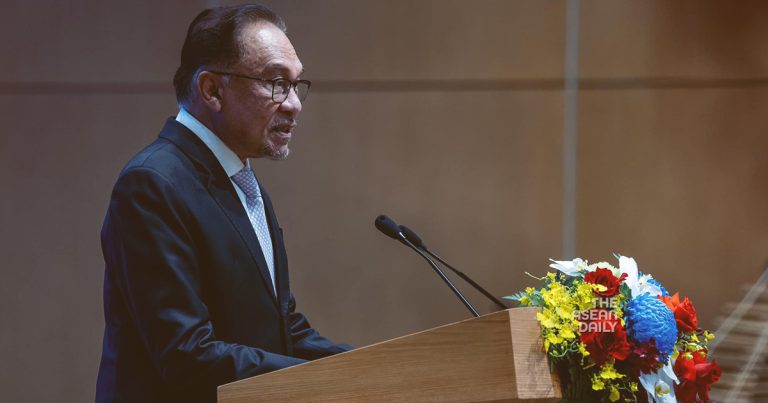29-8-2023 (KUALA LUMPUR) In a decisive move towards sustainable energy practices, the Malaysian government has earmarked RM2 billion as initial funding for the National Energy Transition Facility (NETF), according to Prime Minister Datuk Seri Anwar Ibrahim. The announcement was made during the launch of Phase 2 of the National Energy Transition Roadmap (NETR).
Addressing the audience at the Kuala Lumpur Convention Centre, Prime Minister Anwar emphasised the critical importance of this allocation in light of Malaysia’s nascent decarbonisation technologies. He underlined that Malaysia’s journey towards a sustainable future relies significantly on embracing alternative energy sources and fostering robust regional and international partnerships.
Highlighting the financial aspect as a paramount challenge in the energy transition, Anwar estimated that an investment of at least RM1.2 trillion between 2023 and 2050 would be necessary to enable a responsible energy transition. He pointed out that within the current decade, the government requires an allocation ranging from RM60 billion to RM90 billion for essential projects, including expanding public transportation, strengthening grid infrastructure, and upskilling the workforce.
In response to these pressing needs, the government will allocate RM2 billion as seed funding for the NETF. This facility is expected to facilitate catalytic blended finance, ensuring a smooth flow of financial resources towards energy transition projects that may have limited bankability or offer returns below market standards. The projects include investments in the electric vehicle (EV) value chain, hydrogen initiatives, and carbon capture, utilisation, and storage (CCUS) technologies.
To maintain comprehensive energy planning and policy development, Anwar announced the activation of the National Energy Council, tasked with monitoring the progress of the NETR.
In May of this year, the Malaysian government established a bold objective to achieve 70% renewable energy installed capacity by 2050, concurrently lifting the ban on cross-border trade in renewable energy. Anwar revealed plans for the establishment of a renewable energy exchange, scheduled for launch in 2024. This exchange aims to function as a market aggregator, facilitating price discovery and the monetisation of excess power.
Prime Minister Anwar reflected on the global challenge of carbon-based fuels and their adverse environmental impacts, highlighting the need for sustainable and clean energy solutions. Malaysia’s journey towards renewable energy began in the early 1990s when renewable energy (RE) was classified as the fifth fuel under the National Energy Policy. Currently, the country draws 25% of its energy supply from RE sources such as solar, mini-hydro, biomass, and biogas.
Anwar expressed confidence that Malaysia is on track to source 31% of its power capacity from renewables by 2025 and 40% by 2040. He underscored the critical role of reducing greenhouse gas emissions from electricity and heat generation via fossil fuels, citing the energy sector as the largest emitter of greenhouse gases contributing to climate change.
The Prime Minister highlighted the vast opportunities arising from clean energy transitions, encompassing the entire supply chain, from solar panel manufacturing to electric vehicle (EV) charging infrastructure and battery energy storage. These developments are poised to reshape Malaysia’s economy while offering significant investment prospects in green growth.
Anwar concluded that the National Energy Transition Roadmap (NETR) will provide a clear policy framework, positioning Malaysia as a leading nation in energy transition among Asian economies.




